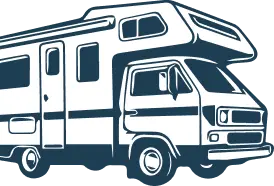
Owning an RV is all about freedom and adventure, but with that comes the responsibility of maintaining and repairing your mobile home on wheels. Regular maintenance is crucial to ensure your RV stays in tip-top shape and to prevent small issues from turning into major problems. This checklist is designed to help you navigate common fixes and gather the essential tools and supplies you’ll need along the way.
Essential Tools
Having the right tools on hand is the first step to tackling any repair. Here’s a breakdown of essential tools for your RV repair kit:
Screwdrivers
- Flathead: Ideal for flat-head screws and minor prying tasks.
- Phillips: Commonly used for most cross-head screws.
- Torx: Useful for screws with star-shaped indentations, often found in RV appliances
Wrenches
- Adjustable Wrench: Versatile tool for various nuts and bolts.
- Socket Wrench: Great for bolts and nuts, providing more leverage and ease of use.
Pliers
- Needle-Nose Pliers: Perfect for tight spaces and detailed work.
- Slip-Joint Pliers: Adjustable for different sizes of objects.
- Channel-Lock Pliers: Ideal for gripping and turning large objects.
Multimeter
A multimeter is essential for diagnosing electrical issues, measuring voltage, current, and resistance.
Flashlight
A reliable flashlight is crucial for illuminating dark areas, especially in tight spaces within the travel trailers.
Hammer
Useful for tasks requiring gentle taps or more forceful impacts.
Essential Supplies
Equipping your RV with the right supplies ensures you’re prepared for various repair scenarios. Here are the must-haves:
- Duct Tape: A versatile tool for temporary fixes on just about anything.
- Electrical Tape: Essential for insulating electrical wires and preventing short circuits.
- Zip Ties: Perfect for securing loose wires and organizing cables.
- Multimeter Probes: Ensure you have the right probes for accurate readings when diagnosing electrical issues.
- Spare Fuses: Having a variety of fuses on hand is crucial for replacing blown ones and restoring functionality to your RV appliances.
- Assortment of Screws, Nuts, and Bolts: An assortment allows you to replace missing or damaged hardware quickly.
- Appliance-Specific Repair Parts: Consult your RV manual for specific parts needed for your appliances to ensure you have the correct replacements.
- RV Sealant: Ideal for sealing leaks and preventing water damage.
- Sandpaper: Useful for smoothing surfaces and cleaning contacts.
- Wire Cutters/Strippers: Essential for cutting and stripping electrical wires during repairs.
Common RV Appliance Fixes
Refrigerator
- Common Problems: Not cooling, strange noises, leaking.
- Tools Required: Screwdrivers, multimeter.
- Supplies Required: Spare fuses, appliance-specific parts.
- Steps for Repair:
- Check the power supply and fuse.
- Inspect the thermostat settings.
- Clean the condenser coils.
- Replace any faulty parts as needed.
Furnace
- Common Problems: Not igniting, producing insufficient heat.
- Tools Required: Screwdrivers, multimeter.
- Supplies Required: Electrical tape, spare fuses.
- Steps for Repair:
- Check the power source and fuse.
- Inspect the igniter and burner.
- Clean the furnace area.
- Replace faulty parts
Water Heater
- Common Problems: No hot water, leaks, strange noises.
- Tools Required: Wrenches, screwdrivers.
- Supplies Required: RV sealant, appliance-specific parts.
- Steps for Repair:
- Check the propane supply or electric connections.
- Inspect and clean the burner assembly.
- Replace the anode rod if necessary.
- Seal any leaks.
Microwave
- Common Problems: Not heating, display issues, strange noises.
- Tools Required: Screwdrivers, multimeter.
- Supplies Required: Spare fuses, appliance-specific parts.
- Steps for Repair:
- Check the power source and fuse.
- Inspect the door switches.
- Test the magnetron.
- Replace any faulty components.
Converter
- Common Problems: No power output, overheating.
- Tools Required: Multimeter, screwdrivers.
- Supplies Required: Spare fuses, multimeter probes.
- Steps for Repair:
- Check the input power supply.
- Test the output voltage with a multimeter.
- Replace blown fuses.
- Inspect and replace any damaged components.
Conclusion
Having the right tools and supplies on hand can make a world of difference when dealing with RV appliance repairs. Regular maintenance and quick fixes can help you avoid bigger issues down the road. Always consult your RV manual for specific guidance and don’t hesitate to seek professional help like Dixie RV Doctor in St. George for more complex problems.
FAQs
The most critical tools include screwdrivers, wrenches, pliers, a multimeter, and a flashlight.
Regularly check your RV appliances before and after trips, and at least once a month during periods of frequent use.
While some household tools can be used, having RV-specific tools ensures better compatibility and efficiency.
If you can't fix an appliance, it's best to consult a professional RV technician to avoid causing further damage.
Prevent common issues by performing regular maintenance, cleaning components, and addressing minor problems promptly.

